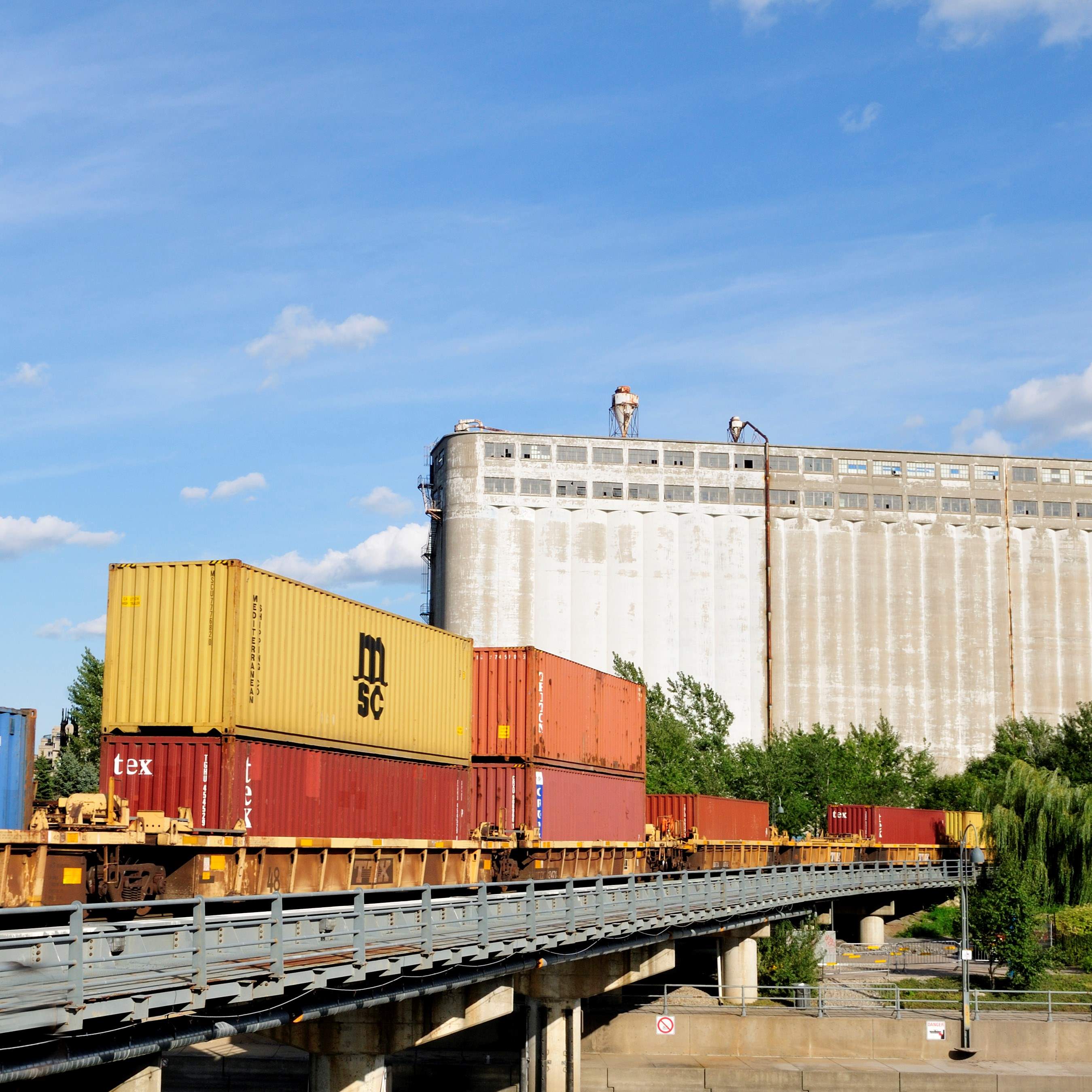
Rail capacity expansion project
This project will increase rail freight capacity to support the growth of the metropolitan region and the Canadian economy. The project was completed in July 2024.
Project overview
The Port of Montreal's rail network currently has close to 100 km of track to serve the fourteen terminals. Each year, it transports 2,500 km of railcars.
Project works include:
- Installation of 6 km of additional railroad tracks and switches
- Complementary work to develop the internal rail network.
- Relocation of the Port Road
$18.3 million in financial support from the Government of Quebec under its Maritime Strategy $18.4 million in financial support from the Government of Canada to optimize its intermodal network under the National Trade Corridor Fund. Awarding of the mandate to increase rail capacity to the firm CIMA+. As sustainability is at the core of the MPA's business processes, the project team identified several measures that will make it possible to improve the project on this front. They include: Phase 1: sections 39 to 44 (between Alphonse D. Roy Street ans Bourbonnière Avenue) Phase 2: sections 32 to 39 (between Jacques Cartier Bridge and Davidson Street) Phase 3: sections 24 to 32 (between Pied-du-Courant Park and Atateken Street)Project timeline
May 2017
April 2018
June 2018
2019
2020
2021
2022
2023
April to September: main work
October and November: finishing work and dismantling of the work site

Mitigation measures
Once the Environmental Effects Evaluation is completed, the Montreal Port Authority team expects that the construction work will not have notable impacts on cohabitation with the adjacent neighbourhoods.
However, to avoid impacts on the surrounding population, mitigation measures have been included in the project and will be closely monitored and adjusted as needed. A resource person is specifically assigned to carry out this monitoring as part of the project. Here are some of the planned mitigation measures:
- The work is mainly scheduled to take place on weekdays between 7 a.m. and 5 p.m. Occasional work may also be required during the day on weekends.
- Spot checks will be conducted in the vicinity of the work site to monitor noise levels.
- Particular attention will be paid to areas where there is machinery, which will be installed as far away as possible from dwellings.
- Mobile machines will be equipped with white noise back-up alarms. In addition, the roads used by the trucks will be maintained and dust suppressants will be used as required.
